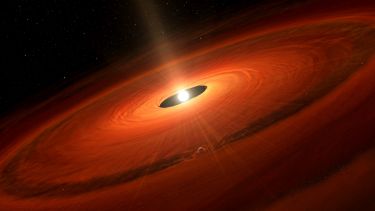Star and Planet Formation

Academic staff: Professor Simon Goodwin, Dr Richard Parker
Postdoctoral researchers: Mr Joseph Eatson
PhD students: Megan Allen
Star formation
Almost all stars form in binary and multiple systems and so correctly predicting their properties in one of the best tests of star formation models.
We are conducting hydrodynamic simulations of star formation using both particle- (SPH) and grid-based (AMR) methods to investigate the fragmentation of dense molecular cores, as well as the evolution of proto-planetary discs.
In addition, we are investigating how binary properties are altered in star clusters in an attempt to constrain the initial binary populations.
Star clusters
Star clusters are the birth places of almost all stars. We are investigating the initial conditions and early dynamical evolution of star clusters and we have recently formulated a new model of star cluster evolution from cool, clumpy initial conditions.
We are also very interested in massive young clusters in which we can observe large samples of extremely massive stars including evolved stars in unusual evolutionary states. Such massive young clusters are found in active galaxies and we are researching how these clusters affect the properties of these galaxies and their connection with AGN.
Planet formation
Planets form at the same time as stars and so understanding the birth environment of stars is crucial to our understanding of how planets form, evolve, and whether they are viable places for life to develop.
We are constructing models to quantify the impact of star formation on planetary systems by studying the effects of radiation fields from massive stars on protoplanetary discs and by determining the number of destructive encounters with passing stars a fledgling planetary system experiences during its infancy.
This research is enabling us to understand whether our Solar System is the typical outcome of the planet formation process, or whether our planetary system has had a sheltered upbringing which has facilitated the development of life on Earth.
Current PhD opportunities in this topic
Photoevaporation of discs around binary stars, by binary stars
